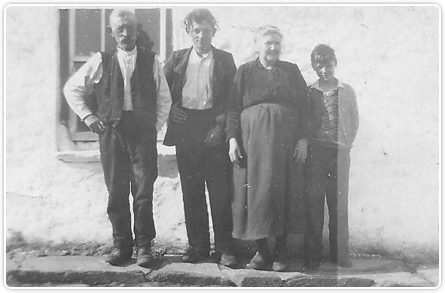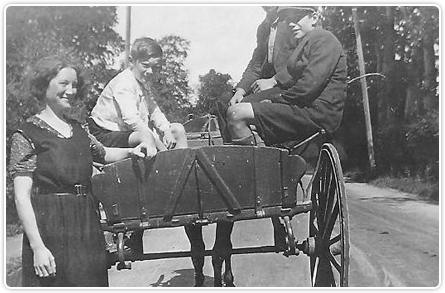HOW TO TRACE YOUR ANCESTORS
THIS COURSE IS AN IDEAL WINTER HOBBY COURSE.
Level
This course is open to all levels. You do not need any experience in genealogy, but you will need to have very basic computer skills(just enough knowledge to be able to search in websites on the internet).
Aims
We will explain the methodology behind genealogy. We will show you how to research, find and locate genealogical documents (census, church, civil and land records). We will identify what genealogical documents are available online and offline for Irish family history research.

Objectives
We will give you the knowledge, tools & skills that will allow you to research your Irish family.Each week we will support you as you develop one line of your family tree through the various sources for Irish family history.
Duration
Two hours a week for four weeks
Capacity
The course is limited to 10 people per session. If you have a larger group arrangements can be made to accommodate your needs.

Genealogy for tourists - Introduction To Genealogy - Trace your Irish ancestors - Conversational Irish Language Archaeology for tourists
Course setting & materials:
The course will be delivered in a meeting room setting with the aid of power point slides and laptops.
We will provide you with the use of laptops for the duration of the course.
On enrolment you will receive a pedigree sheet. You will be instructed to gather the necessary information you will need for your research in order to get the maximum benefit from the course. This will involve interviewing older relatives, calculating approximate dates of birth, marriage and death. Choose one line of your family tree that you wish to develop through the duration of the course.
You will receive detailed course notes.
You will see samples of documents that you should be able to find for your own family.
Price: On application
Locations:
Kerry.
*We can travel to any location throughout Kerry and put on the course. We are a complete training unit and will supply all the laptops, projectors and equipment.
Topics:
Week one:
- Getting Started.
- Gathering and collating information.
- Establishing the identity and location of the townland.
- Identifying the poor law union and applying this knowledge to find copies of civil certificates (birth, marriage and death certificates).
- Looking at maps to define parish boundaries.
- Ascertaining local, regional, online and offline family history resources.
- Townland/Surname spelling variations – Tips on how generate research results by knowing the possible variations of spellings of townland and surnames.
Week two:
- Census records
- How to use the information on the census to find more genealogical documents. Looking at what information the census provides us with and assessing the information and applying it to further research.
- How to use the census to find civil and church records.
- Hidden information in other census forms.
Week three:
Church records and Civil records
- Church records – baptisms, marriages and burial records. We will show you what church records are available for research online and offline. Techniques on how to generate research results. We will discuss how we can apply the information on the church records to developing our family tree.
- Defining the difference between civil and ecclesiastical parishes.
- Civil records – births, marriages and death records. We will look at what information can be gained from these records and how one record leads to finding another. For example a marriage record can give the information of a previous generation of a family.
- We will use the online Index of Ireland, Civil Registration Indexes 1845 -1958 to find reference numbers for births, marriages and death records as to be able to obtain copies of the records.
- We will look at how to establish the poor law union in week one which will give the knowledge of the correct Superintendent’s Registrar’s District to look for a civil record. We will apply this learning in week three.
Week four:
Land Records & Various Irish family history resources.
- Land records – We will look at the land records available for research online which will place your family between 1847 – 1864
- We will learn about land records which are off-line and which may bring your family back to the 1780′s.
- A quick look at wills and deeds and directories.
- Putting the information together by looking at the various free online sources to help you collate your research.
- Planning advanced research and a guide to self-directed genealogical research.
What you will leave the course with:
Following the course you will:
- Have developed one line of your family tree.
- Have the knowledge of the online sources available for ancestral research.
- Know what type of genealogical collections each of the main archives in Ireland hold.
- Be able to continue with your family research independently of the course and develop more lines of your family tree.
.


